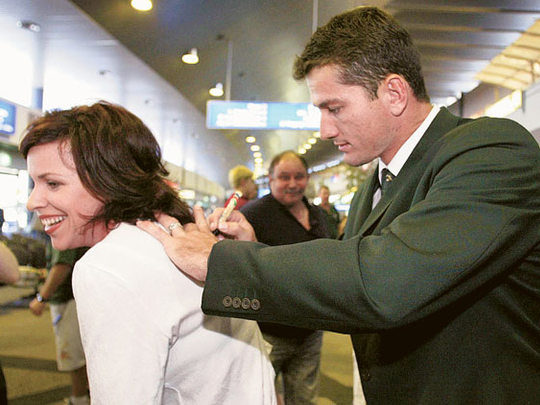
Dubai: Joost van der Westhuizen's fundraising drive to help investigate the link between motor neuron disease and sport comes at a vital time in research according to one of the world's leading specialists in neuro degenerative diseases.
The former South African scrum-half, in Dubai doing Rugby World Cup punditry for OSN Showtime, was given an 80 per cent chance of living for another two to five years following diagnosis of the rare and incurable disease this summer.
Sufferers of the fatal condition, which destroys cells in muscles used for swallowing, speech, walking and breathing, have included sportsmen from baseball player Lou Gehrig to former UAE football coach Don Revie. Two lives for every 100,000 people are claimed by the disease every year.
Van der Westhuizen wants more research done on variables such as pesticides in turf, multiple concussions and heavy knocks sustained in contact sports to try and find the root cause of the condition.
He has organised two fundraisers in Dubai, ‘Jazz with Joost' which took place last Tuesday and a Golf Day at Emirates Golf Club on October 4 in order to raise interest.
Professor Orla Hardiman at the University of Dublin has welcomed Van der Westhuizen's input.
‘We just don't know'
"There is a perception that we see more people of an athletic disposition succumbing to MND than we should — but the truth is we just don't know the cause," she said.
"It may not be the sport per se but the genetic predisposition to be good at sport. It could be environmental or it could be a combination of both. There is an ongoing five-year study on lifestyle and MND where we survey 800-1,000 patients. This will give a definitive answer to the sport and MND link."
Hardiman explained breakthroughs in locating the genetic source of MND meant drugs to cure, slow or reverse the neuro-degenerative juggernaut heading toward an ageing western civilization were just around the corner.
"If you take the example of Aids and cancer, within 30 years we've come from not understanding the disease to enabling patients to live perfectly normal life spans. It's very likely that within ten to 15 years we'll do the same with neuro-degenerative diseases.
"We could even do it within three years if a drug undergoing clinical trial at the moment is deemed successful," she said.








